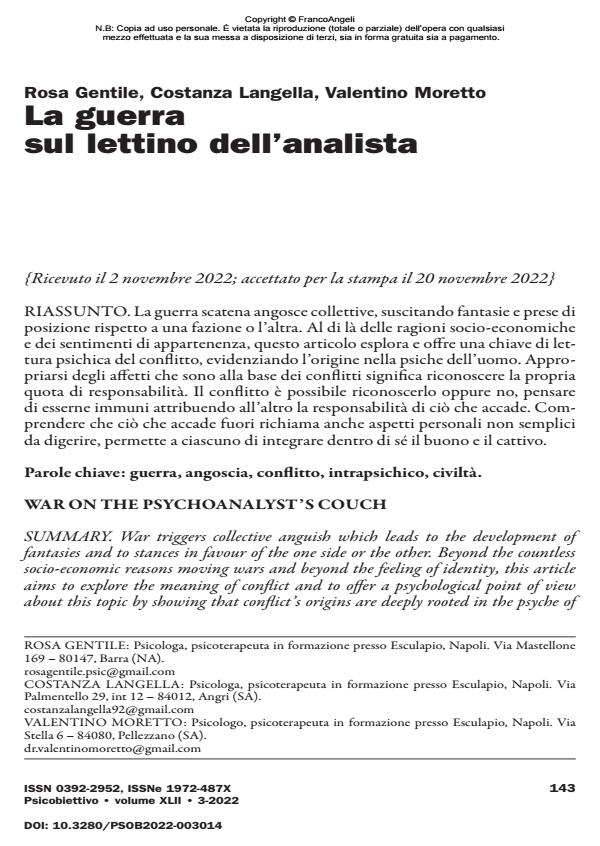War on the psychoanalyst’s couch
Journal title PSICOBIETTIVO
Author/s Rosa Gentile, Costanza Langella, Valentino Moretto
Publishing Year 2022 Issue 2022/3
Language Italian Pages 13 P. 143-155 File size 660 KB
DOI 10.3280/PSOB2022-003014
DOI is like a bar code for intellectual property: to have more infomation
click here
Below, you can see the article first page
If you want to buy this article in PDF format, you can do it, following the instructions to buy download credits

FrancoAngeli is member of Publishers International Linking Association, Inc (PILA), a not-for-profit association which run the CrossRef service enabling links to and from online scholarly content.
War triggers collective anguish which leads to the development of fantasies and to stances in favour of the one side or the other. Beyond the countless socio-economic reasons moving wars and beyond the feeling of identity, this article aims to explore the meaning of conflict and to offer a psychological point of view about this topic by showing that conflict’s origins are deeply rooted in the psyche of humanity. Identifying the affections at the heart of conflicts means to recognize our own responsibility. It is possible to recognize conflict’s existence or not and even to deny its presence by disavowing reality, or to think to be immune giving others the responsibility of any event. The understanding of the mechanisms by which external facts recall personal aspects - not necessarily easy to be digested - enables everyone to integrate the good and the bad, life and death, Eros and Thanatos inside themselves.
Keywords: war, anguish, conflict, intrapsychic, civilization.
Rosa Gentile, Costanza Langella, Valentino Moretto, La guerra. sul lettino dell’analista in "PSICOBIETTIVO" 3/2022, pp 143-155, DOI: 10.3280/PSOB2022-003014